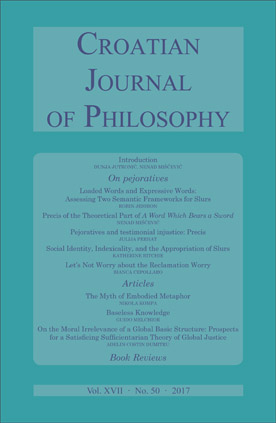Baseless Knowledge
Baseless Knowledge
Author(s): Guido MelchiorSubject(s): Epistemology
Published by: KruZak
Keywords: Basing relation; externalism; reliabilism; sensitivity; safety; virtue epistemology;
Summary/Abstract: It is a commonly held view in contemporary epistemology that for having knowledge it is necessary to have an appropriately based belief, although numerous different views exist about when a belief’s base is appropriate. Broadly speaking, they all share the view that one can only have knowledge if the belief’s base is in some sense truth-related or tracking the truth. Baseless knowledge can then be defined as knowledge where the belief is acquired and sustained in a way that does not track the truth. I will argue that rejecting baseless knowledge leads to controversial consequences. The problem increases if we consider contrasting persons who know because of appropriate belief forming processes but who fail to possess further epistemic virtues such as understanding. I will not argue which belief bases constitute a sufficient condition for knowledge. Rather I will stress the point that the common assumption that an appropriate basing relation constitutes a necessary condition for knowledge has controversial consequences.
Journal: Croatian Journal of Philosophy
- Issue Year: XVII/2017
- Issue No: 50
- Page Range: 211-231
- Page Count: 21
- Language: English
- Content File-PDF

